Search Strings
To improve the quality of the search results you obtain we need to develop search words that we will use to search the internet for information about the “Effectiveness of small team dynamics in rural areas.”
We will create a table to help us build our list of search words. This is also a good time to get out that thesaurus.
Main Ideas:
Our original concepts are in bold and at the top of the list. Under each concept we need to list words that have similar or the same meaning as the original concept.
| Term 1 | Term 2 | Term 3 | Term 4 |
|---|---|---|---|
| Effectiveness | (small) Team | Dynamics | Rural |
| Efficiency | Group | Interactions | Non-urban |
| Value | Party | Relations | Small town |
| Usefulness | Peer | Collaborations | Rural community |
| Success | Unit | Associations | Agricultural |
| Country |
We now have a wide variety of words to use to help us search for information on Effectiveness of small team dynamics in rural areas.
When searching it is also helpful to drop any of the connecting words and only use a combination of the words from the list above.
For instance:
success small group collaboration rural areas
We can put this string of search words into any of the search engines.
Let’s put them into Google and see if we have improved the quality of the information returned.
Try it yourself!
Open up your favourite internet browser and use the search words you have developed above to look at the topics that begin to emerge.
Reviewing the returns we can see that more specific topics have emerged. Several topics dealing with managing small rural medical teams have emerged. There are other topics covering farming, agriculture, small town interactions, small businesses and several others.
From this list we have now decided to turn our focus to deal with management of small business teams.
Refining our search words
Let us rephrase our topic sentence.
Currently we have;
Effectiveness of small team dynamics in rural areas
We now are going to focus this for the business profession. Our new search string becomes the following:
Managing team dynamics in rural small businesses
We will now add to our search words list.
| Term 1 | Term 2 | Term 3 |
|---|---|---|
| Team | Dynamics | Rural |
| Group | Interactions | Non-urban |
| Party | Relations | Small town |
| Peer | Collaborations | Rural community |
| Unit | Associations | Agricultural |
| Country |
| Term 4 | Term 5 | Term 6 |
|---|---|---|
| Managing | Small | Business |
| Supervising | Micro | Trade |
| Overseeing | Industry | |
| Administration of | Company | |
| Directing | Organisation |
Using our revised search string and removing the connecting words, our new initial search string looks like the following:
Managing team dynamics in rural small businesses
For this search string in Google we have 136,000 search results.
Let's take a look at some of the results
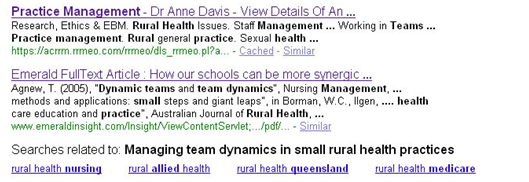
Figure 1. Portion of the search result returns.
Using search results to find additional topic information
If we click into the Agnew, T (2005) link we discover that this is a reference page that lists multiple articles that may be useful for our research.
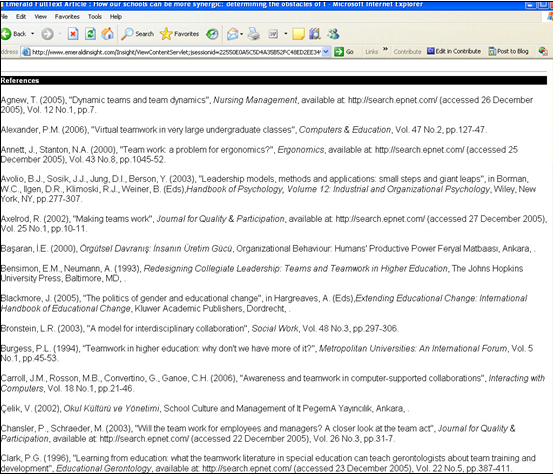
The top one was the one we were originally interested in so we will start there. Copy the author, year and title of the article into the search window and search.
Our result gives us the following paper,
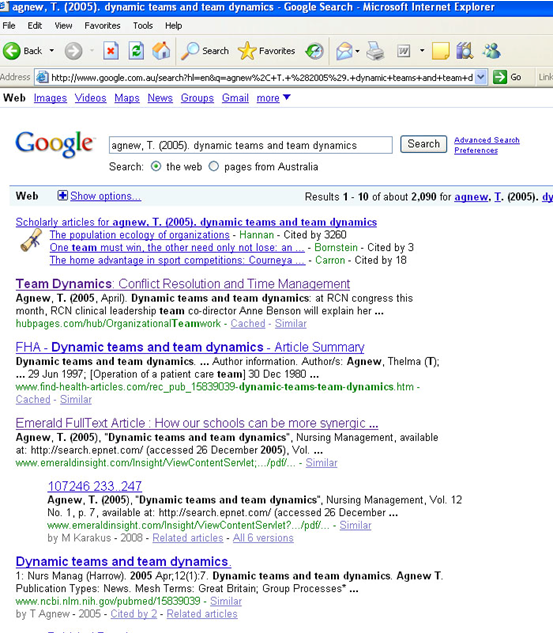
Figure 2. Team Dynamics topic links
The Team Dynamics link that has Agnew, T. (2005, April) in the title is the one we will look at to start with.
When we click on that link we discover the following:
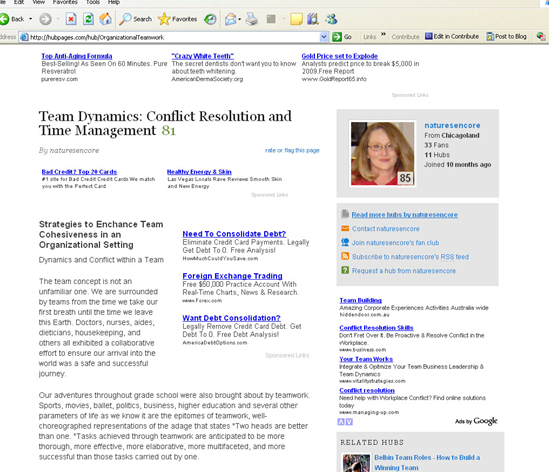
Figure 3. Author who cited Agnew, T.
The above article is not written by Agnew, T. but instead this article is by another person who has referenced Agnew, T. in the article.
Although this was not the original article we where looking for this still holds some good information. We can also skip to the end of the paper and look at the references cited to determine if any of this material would be useful to obtain.
The reference page looks like this,
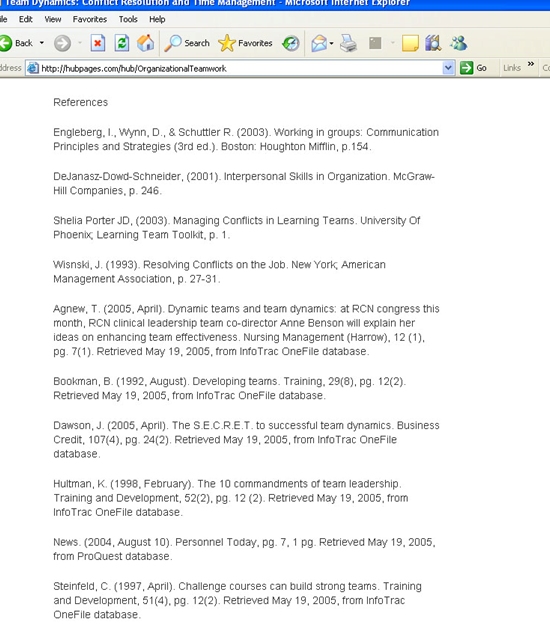
Figure 4. Reference page for Team Dynamics article.
We find that this paper holds many other papers that could be very useful in our research.
When you come across reference pages that hold useful titles to books, journals, or articles it is useful to create a word documents and cut and paste these titles into the word document. We will explore how to effectively look for journal articles and books in another section.
You will find that as you move through the pages of your search results, usually going past the 10th page of results your likelihood to find the information you are looking for is minimal. It is better to use a different combination of search words at this point.
Developing Search String
From our list of words we will make a list of possible search strings to use,
Original search string
Managing team dynamics in rural small businesses
New Search Strings
Supervising team dynamics in rural small businesses
Overseeing team dynamics in rural small businesses
Administration of team dynamics in rural small businesses
Managing group dynamics in rural small businesses
Supervising group dynamics in rural small businesses
Overseeing group dynamics in rural small businesses
Administration of group dynamics in rural small businesses
Managing team interactions in rural small businesses
Supervising team interactions in rural small businesses
Overseeing team interactions in rural small businesses
Administration of team interactions in rural small businesses
Managing team dynamics in rural micro businesses
Supervising team dynamics in rural micro businesses
Overseeing team dynamics in rural micro businesses
Administration of team dynamics in rural micro businesses
And so forth, as you can see the amount of search strings that you can create is endless. Begin with the most common substitutions for your main topics first before you use others that may be less prevalent.
Try it yourself!
Open up your favourite internet browser and use the search strings you have developed.
Although we now have lots of search strings to use we still have a few more topics to cover before we can effectively use these search strings to find the information we need.